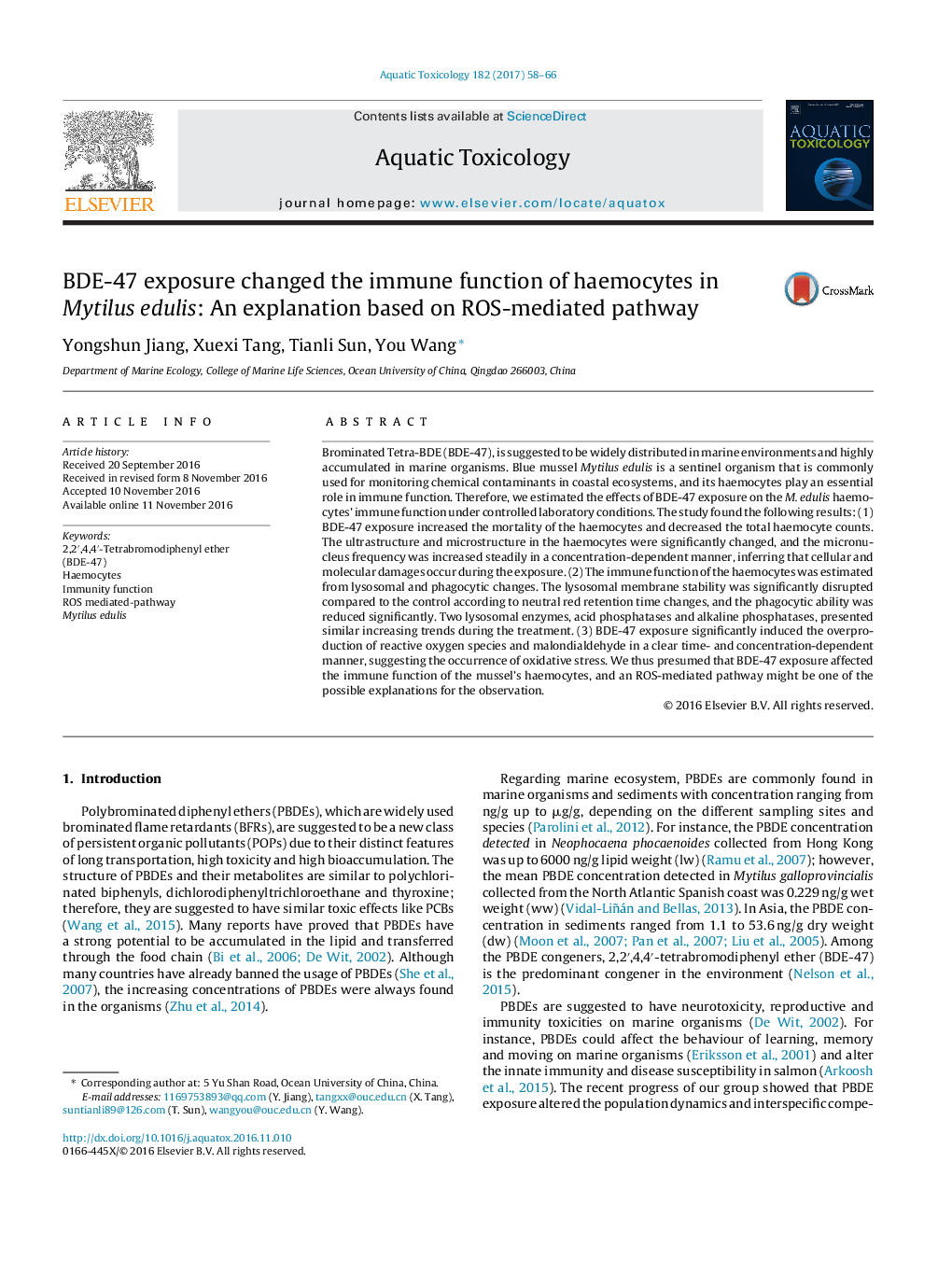| Article ID | Journal | Published Year | Pages | File Type |
|---|---|---|---|---|
| 5764340 | Aquatic Toxicology | 2017 | 9 Pages |
Abstract
Brominated Tetra-BDE (BDE-47), is suggested to be widely distributed in marine environments and highly accumulated in marine organisms. Blue mussel Mytilus edulis is a sentinel organism that is commonly used for monitoring chemical contaminants in coastal ecosystems, and its haemocytes play an essential role in immune function. Therefore, we estimated the effects of BDE-47 exposure on the M. edulis haemocytes' immune function under controlled laboratory conditions. The study found the following results: (1) BDE-47 exposure increased the mortality of the haemocytes and decreased the total haemocyte counts. The ultrastructure and microstructure in the haemocytes were significantly changed, and the micronucleus frequency was increased steadily in a concentration-dependent manner, inferring that cellular and molecular damages occur during the exposure. (2) The immune function of the haemocytes was estimated from lysosomal and phagocytic changes. The lysosomal membrane stability was significantly disrupted compared to the control according to neutral red retention time changes, and the phagocytic ability was reduced significantly. Two lysosomal enzymes, acid phosphatases and alkaline phosphatases, presented similar increasing trends during the treatment. (3) BDE-47 exposure significantly induced the overproduction of reactive oxygen species and malondialdehyde in a clear time- and concentration-dependent manner, suggesting the occurrence of oxidative stress. We thus presumed that BDE-47 exposure affected the immune function of the mussel's haemocytes, and an ROS-mediated pathway might be one of the possible explanations for the observation.
Related Topics
Life Sciences
Agricultural and Biological Sciences
Aquatic Science
Authors
Yongshun Jiang, Xuexi Tang, Tianli Sun, You Wang,
